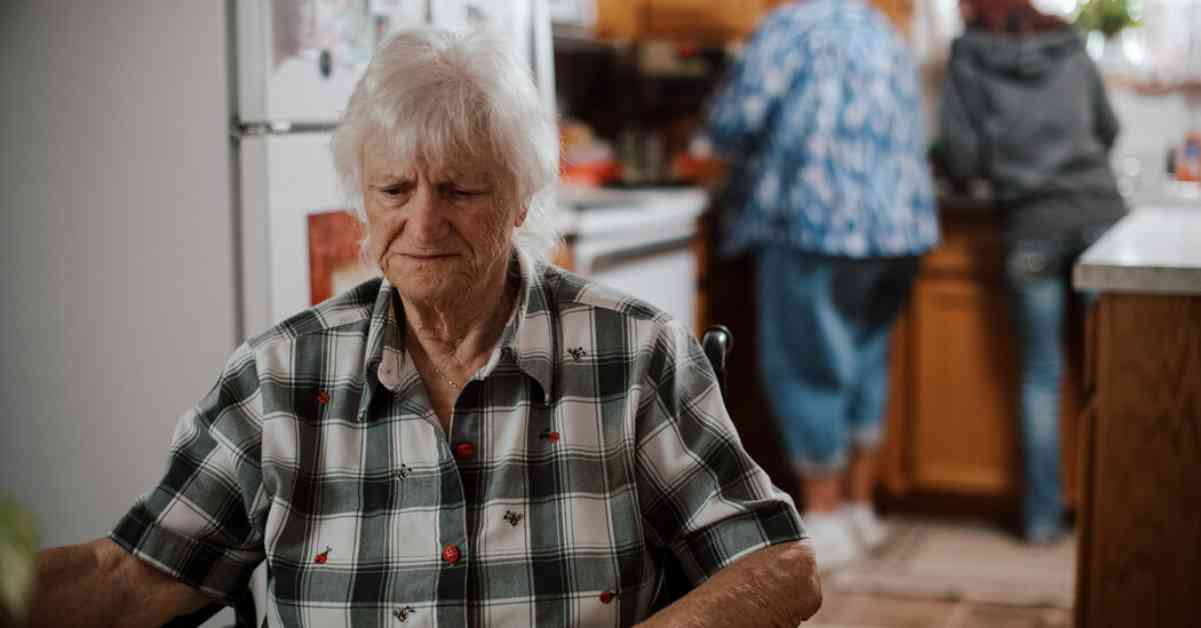Unexpected Turn of Events: Doctors Save Life Against Patient’s Wishes
Marie Cooper, a devout Christian from northern West Virginia, lived her life in accordance with her faith. She was known for her acts of kindness, such as baking pies for her neighbors and saying grace before meals. However, her strong beliefs extended to her end-of-life wishes, as she had made it clear that she did not want to be resuscitated under any circumstances.
Her daughter, Sherry Uphold, shared that her mother believed that the timing of her passing should be left to God’s will, not medical intervention. This sentiment was reflected in Marie’s advance directives, which included specific instructions to withhold resuscitative measures and intubation. Despite having these preferences clearly stated, a series of events unfolded that challenged Marie’s wishes in a heartbreaking manner.
In the midst of winter, Marie was diagnosed with cancer in her stomach, prompting a visit to the hospital for a routine scope to assess the extent of the disease. Following the procedure, Sherry was shocked to find her mother in distress in the recovery room, struggling to breathe despite the presence of an oxygen tube. Desperate for assistance, Sherry alerted the medical staff, who quickly initiated an emergency code in response to Marie’s worsening condition.
As the situation escalated, Marie’s agitation grew, leading to what medical records described as uncooperative behavior. In a controversial move, doctors made the decision to restrain her and insert a breathing tube against her express wishes. This shocking turn of events raised questions about the autonomy of patients and the ethical considerations surrounding medical decision-making.
The Ethical Dilemma: Balancing Medical Intervention and Patient Autonomy
The case of Marie Cooper highlights a complex ethical dilemma faced by healthcare professionals when a patient’s wishes conflict with potentially life-saving interventions. While medical teams are trained to prioritize patient autonomy and respect their advance directives, situations like Marie’s raise difficult questions about the limits of such autonomy in emergencies.
In Marie’s case, her steadfast refusal of resuscitation and intubation clashed with the medical team’s assessment of her immediate need for intervention. Despite her clear instructions, the doctors made the controversial choice to override her wishes in a bid to save her life. This decision, while made with the best intentions, sparked a debate about the boundaries of medical paternalism and the importance of honoring a patient’s autonomy even in critical situations.
The clash between medical expertise and patient autonomy is not a new phenomenon, but Marie’s case sheds light on the emotional toll it can take on families and healthcare providers alike. The difficult decision to intervene against a patient’s wishes is fraught with moral and legal implications, raising questions about the balance between respecting individual autonomy and ensuring the best possible outcome for the patient.
Navigating End-of-Life Care: The Importance of Communication and Advocacy
Marie Cooper’s experience serves as a poignant reminder of the critical role that communication and advocacy play in end-of-life care. As advancements in medical technology continue to prolong life expectancy, discussions surrounding patients’ preferences and values regarding their care become increasingly important.
In the case of Marie, her unwavering beliefs and clear directives should have served as a guiding principle for her medical team. However, the breakdown in communication or misinterpretation of her wishes led to a distressing situation that could have been avoided with open dialogue and mutual understanding between all parties involved.
Moving forward, healthcare providers must prioritize patient-centered care that respects individual autonomy while also recognizing the complexities of medical decision-making in emergency situations. Engaging in meaningful conversations with patients about their values, beliefs, and end-of-life preferences can help prevent similar conflicts and ensure that their wishes are honored to the fullest extent possible.
In conclusion, Marie Cooper’s story serves as a sobering reminder of the delicate balance between medical intervention and patient autonomy in the realm of end-of-life care. While the outcome of her case was ultimately life-saving, the ethical implications and emotional toll of overriding a patient’s wishes cannot be understated. By fostering open communication, advocating for patients’ rights, and upholding the principles of autonomy and respect, healthcare providers can navigate these challenging situations with compassion and integrity.














